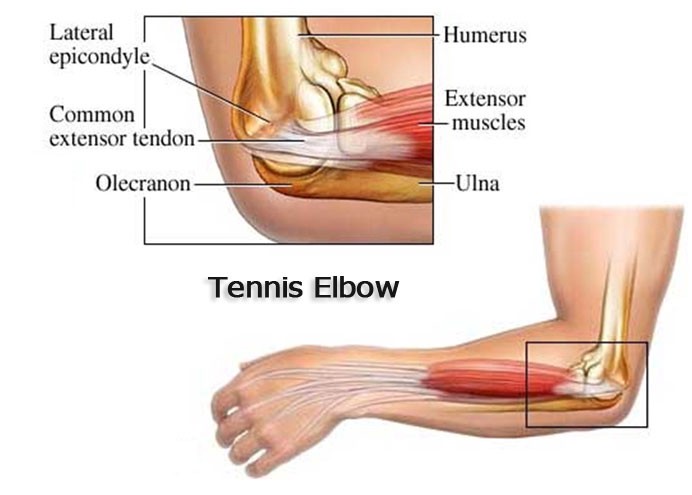Elbow Surgery in Nepal
Search and Compare the Best Clinics and Doctors at the Lowest Prices for Elbow Surgery in Nepal

Find the best clinics for Elbow Surgery in Nepal
No clinics available
Russian Federation offers the best prices Worldwide
Price: $ 553

- Home
- Nepal
WHY US?
At Medijump, we're making medical easy. You can search, compare, discuss, and book your medical all in one place. We open the door to the best medical providers worldwide, saving you time and energy along the way, and it's all for FREE, no hidden fees, and no price markups guaranteed. So what are you waiting for?

Free

Best Price

Widest Selection

Risk-Free
What you need to know about Elbow Surgery in Nepal

Elbow surgery is a surgical procedure to treat an injured elbow, such as damage in the tendons that connect your muscles to the elbow bone. The procedure is required when other treatment options cannot improve the symptoms and affect your ability to perform a simple task, such as lifting a cup.
What Does the Procedure Involve?
There are two types of elbow surgery: open surgery and arthroscopic surgery, both can be performed under general or local anesthetic. In open surgery, your surgeon makes a single incision above the bone on your elbow side and removes the damaged part of the tendon. In arthroscopic surgery, your surgeon creates small incisions in the skin over the elbow to insert tiny instruments and a camera, then, the damaged parts of your tendon are removed using these tiny instruments. Depending on your condition, elbow surgery may also involve replacing your elbow joint.
How Long Should I Stay in Nepal for a Elbow Surgery Procedure?
Elbow surgery is usually performed as an outpatient procedure, which means you can leave the hospital on the same day. Nevertheless, you will need to stay in Nepal for 5 to 7 days for initial recovery, follow-up hospital checkups, and removal of stitches.
What's the Recovery Time for Elbow Surgery Procedures in Nepal?
The total recovery time before you are allowed to exercise or play sports can be as long as four to six months. However, you should be able to return to work and some light activities within six to twelve weeks.
What sort of Aftercare is Required for Elbow Surgery Procedures in Nepal?
There are usually no dietary restrictions, but you should eat a healthy and balanced diet. You will need to do strengthening exercises, but make sure to do it with a physical therapist that will show you the right exercises to strengthen your elbow. After you are fully recovered, always be careful not to injure your elbow again and your doctor may recommend exercises to strengthen your shoulder so you can take the pressure off the elbow.
What's the Success Rate of Elbow Surgery Procedures in Nepal?
Approximately 80% to 90% of people who have elbow surgery said that their pain was reduced and their movement improved. Elbow surgery has possible side effects and risks, including infection, damage to nerves in the elbow, damage to blood vessels in the elbow, reduced strength, reduced flexibility, severe pain, swelling that does not go away, redness, numbness, fever, and tingling sensations in your hands or fingers.
Are there Alternatives to Elbow Surgery Procedures in Nepal?
If you do not want to undergo surgery, you can usually treat it with pain relievers and rest. Your doctor may also recommend an elbow brace and a few adjustments to your daily activities. However, for severe cases, you may want to consider elbow surgery.
What Should You Expect Before and After the Procedure
Injury in your elbow can be very painful and limit your movements. After elbow surgery, you will be able to move your elbow easily and all pain will be reduced. As a result, you can continue to enjoy sports and other activities.
Whilst the information presented here has been accurately sourced and verified by a medical professional for its accuracy, it is still advised to consult with your doctor before pursuing a medical treatment at one of the listed medical providers
No Time?
Tell us what you're looking for and we'll reachout to the top clinics all at once
Enquire Now

Popular Procedures in Nepal
Prices Start From $964

Prices Start From $218

Prices Start From $218

Prices Start From $2,050

Recommended Medical Centers in Nepal for procedures similar to Elbow Surgery

- Interpreter services
- Translation service
- Religious facilities
- Medical records transfer
- Medical travel insurance
- Health insurance coordination
- TV in the room
- Safe in the room
- Phone in the room
- Private rooms for patients available

- Interpreter services
- Translation service
- Religious facilities
- Medical records transfer
- Medical travel insurance
- Health insurance coordination
- TV in the room
- Safe in the room
- Phone in the room
- Private rooms for patients available

- Interpreter services
- Translation service
- Religious facilities
- Medical records transfer
- Medical travel insurance
- Health insurance coordination
- TV in the room
- Safe in the room
- Phone in the room
- Private rooms for patients available
Elbow Surgery in and around Nepal
Introduction
Nepal is a country in South Asia, sandwiched between India and China. Home to the mighty Mount Everest, this incredible country has diverse landscapes, from the Himalayan Mountains in the north to the sprawling plains in the south. Towering mountains, charming hill villages, golden mountains, and jungle wildlife, Nepal is truly one of the world’s best travel destinations. Beyond its nature and culture, this country is also increasingly popular for its healthcare. With its affordable high-quality medical facilities, Nepal is considered to have immense potential for medical tourism, due to the availability of good infrastructure, highly trained specialists, modern medical equipment, and relatively cheaper medical treatment. In fact, it’s currently the fastest-growing segment of the country’s tourism. Medical tourists coming to Nepal are usually seeking exceptionally high medical treatment at competitive rates. Some of the most sought after procedures are dental treatments, cardiac services, and neurological treatments.
Popular Cities and Regions in Nepal
Kathmandu, the capital and largest city in Nepal, is historic, enticing, spiritual, and vibrant. One of the most famous attractions in the city is the old town, where tourists can find the most popular Tibetan pilgrimage site, the Kathesimbhu Stupa. Another top attraction is Kumari Bahal, which is the home of the Kumari, the girl who is selected to be the town’s living symbol of Devi. Tourists looking to relax in a more laid-back vibe usually go to Pokhara. Stretching along the shore of an idyllic lake, it offers spectacular scenery. It also boasts a thriving adventure-sports industry, from paragliding to paddle boats. Anyone who wants to experience an ancient way of life should visit Bhaktapur, which is filled with artisan weave cloths, amazing cuisine, and beautiful temples.
Transport in Nepal
The main international airport in Nepal is Tribhuvan International Airport, which serves flights to and from numerous cities in Asia, such as Delhi, Hong Kong, and Dubai. Getting around the country can be a challenge, but public transportation is available. Buses are affordable, however, they tend to be overloaded. Tourist buses are the best way to travel around as they are in good condition.
Visas in Nepal
Citizens of India do not need a visa to enter Nepal without restrictions. Citizens of almost all nations, including the US and all EU countries, can obtain a visa on arrival that is valid for up to 90 days. Only holders of passports from 12 countries, need to have a visa in advance.
Weather in Nepal
Nepal has five seasons. Spring starts in March until May, it offers pleasant weather that is not too cold nor too hot. Summer arrives in June and ends in August, bringing hot temperatures of around 28°C. Monsoon from June to September receives rain almost every day. Autumn and pre-winter bring sunny and pleasant weather, while winter can be very cold.
Additional Info
-
Local Currency: Nepali rupee (NPR) is the official currency. 1 USD converts to 115 NPR.
-
Money & Payments: ATMs are available in major cities, such as Kathmandu and Pokhara. Credit cards are accepted in major hotels and restaurants. Tipping is expected.
-
Local Language: The official language is Nepali. English is mainly spoken in tourism areas.
-
Local Culture and Religion: Hinduism and Buddhism coexist in Nepal peacefully. Islam, Kiratism, and Christianity are in the minority.
-
Public Holidays: Some of the most celebrated public holidays are Maha Shivaratri, Buddha Jayanti, Sambidhaan Diwas, and Bhaitika.
Popular Searches
- Plastic Surgery in Thailand
- Dental Implants in Thailand
- Hair Transplant in Thailand
- Breast Augmentation Thailand
- Gastric Sleeve in Thailand
- Gender Reassignment Surgery in Thailand
- Laser Hair Removal in Bangkok
- Botox in Bangkok
- Dermatology in Bangkok
- Breast Augmentation in Bangkok
- Coolsculpting in Bangkok
- Veneers in Turkey
- Hair Transplant in Turkey
- Rhinoplasty in Turkey
- Stem Cell Therapy in Mexico
- Rhinoplasty in Mexico
- Liposuction in Mexico
- Coolsculpting in Tijuana
- Rhinoplasty in Korea
- Scar Removal in Korea
- Gastric Sleeve in Turkey
- Bone Marrow Transplant in India
- Invisalign in Malaysia
- Plastic Surgery in the Dominican Republic
- Tummy Tuck in the Dominican Republic
- Plastic and Cosmetic Surgery in Poland
- Rhinoplasty in Poland
- Hair Implant in Poland
- Dental Implants in Poland
- IVF in Turkey